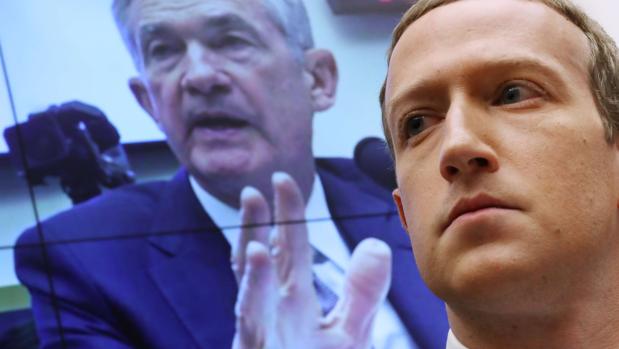
Censorship in the social network?
It is what can be interpreted with its defense of one of the most disturbing measures that the social network has undertaken in recent times, allowing political ads to misinform or include falsehoods - something prohibited, in theory, to all users - in electoral period With his head up, he says he accepts it because Facebook is not a censor. That does not act as a regulator of what is true or not. That mission is not his responsibility. But it is true, however, that the platform is profitable at the expense of, precisely, the information flow and, acting as a sibling, acts news. For better or worse, but decide, organize and rank. As a business, you will never do anything that hurts.
About civil rights
His intervention before the incisive questions of the American politicians, Zuckerberg, tanned in a thousand and one battles of this type, knew how to defend himself, although there were occasions in which he had to raise his eyebrow. In more than one time he hesitated and admitted mistakes. Joyce Beatty, a Democratic politician, called into question that the company respects civil rights considering that Facebook's efforts to address abuses in this area were insufficient, even calling them "heinous and unpleasant." "In her initial statement, she talked a lot about civil rights," said the congresswoman. "I think we should probably express it somewhat differently: that her work with civil rights is due to the number of demands she has had."
Diversity Issue
Ensuring, briefly, that it is one of his great challenges, Zuckerberg retained his inert face throughout the interrogation. He asked about the hiring of women by Facebook, allegations of housing discrimination or the ongoing civil rights audit of the company, by Relman Dane & Colfax, a Washington law firm. "Do you know who the company you work with for civil rights advice is?" Beatty said. "Congressman, no," he replied. «How could I not know when you have employed the most historic and most important civil rights firm? It is very frustrating for me. It is to think that it is a joke when it ruined the lives of many people, ”he said.
An attempt was also made to corner Zuckerberg because of the questioned diversity in the Facebook template. Beatty, in fact, reminded him of allegations of racism by some former employees: “Do you know what percentage of African Americans there is on Facebook compared to society? Do you know what the percentage is? ”He asked. "People who use Facebook?" Zuckerberg replied. "Do you know how many African Americans?" Beatty insisted, to which the businessman simply said: "No, because we don't pick up the race of users."
Democratic media lawmaker Alexandria Ocasio-Cortez dared with more insistent questions about the Cambridge Analytica scandal and its political advertising system. Asked about the decision to exempt the application of its fact-checking system in political advertising, Zuckerberg admitted that it does eliminate content in cases of violence or repression of voters. But there was more: he asked if it was possible to publish an ad with erroneous dates about the electoral call addressed to its black users. There was no answer. But it should be remembered that the social network refused to eliminate a false announcement of Trump's campaign about Biden's relations with Ukraine.
About Libra, his great project
Facebook has been under public scrutiny in recent months at the expense of its large Libra project, its cryptocurrency proposal that regulators, governments and banks around the world have not liked at all. Faced with politicians' questions, Zuckerberg appealed to patriotism by ensuring that Libra will serve to broaden the "financial leadership" of the United States, while recognizing the credibility "problems" of his company in recent years.
“It's something to do, but I understand that we are not the ideal messenger right now. We have faced a lot of problems in recent years and I am sure that people would like it to be another instead of Facebook to address abuses in this area were insufficient, even calling them "heinous and unpleasant." "In her initial statement, she talked a lot about civil rights," said the congresswoman. "I think we should probably express it somewhat differently: that her work with civil rights is due to the number of demands she has had."
Diversity Issue
Ensuring, briefly, that it is one of his great challenges, Zuckerberg retained his inert face throughout the interrogation. He asked about the hiring of women by Facebook, allegations of housing discrimination or the ongoing civil rights audit of the company, by Relman Dane & Colfax, a Washington law firm. "Do you know who the company you work with for civil rights advice is?" Beatty said. "Congressman, no," he replied. «How could I not know when you have employed the most historic and most important civil rights firm? It is very frustrating for me. It is to think that it is a joke when it ruined the lives of many people, ”he said.
An attempt was also made to corner Zuckerberg because of the questioned diversity in the Facebook template. Beatty, in fact, reminded him of allegations of racism by some former employees: “Do you know what percentage of African Americans there is on Facebook compared to society? Do you know what the percentage is? ”He asked. "People who use Facebook?" Zuckerberg replied. "Do you know how many African Americans?" Beatty insisted, to which the businessman simply said: "No, because we don't pick up the race of users."
Democratic media lawmaker Alexandria Ocasio-Cortez dared with more insistent questions about the Cambridge Analytica scandal and its political advertising system. Asked about the decision to exempt the application of its fact-checking system in political advertising, Zuckerberg admitted that it does eliminate content in cases of violence or repression of voters. But there was more: he asked if it was possible to publish an ad with erroneous dates about the electoral call addressed to its black users. There was no answer. But it should be remembered that the social network refused to eliminate a false announcement of Trump's campaign about Biden's relations with Ukraine.
About Libra, his great project
Facebook has been under public scrutiny in recent months at the expense of its large Libra project, its cryptocurrency proposal that regulators, governments and banks around the world have not liked at all. Faced with politicians' questions, Zuckerberg appealed to patriotism by ensuring that Libra will serve to broaden the "financial leadership" of the United States, while recognizing the credibility "problems" of his company in recent years.
“It's something to do, but I understand that we are not the ideal messenger right now. We have faced a lot of problems in recent years and I am sure that people would like it to be someone other than Facebook who proposes this idea, ”he said. The goal of Facebook, he said, is "to put power in the hands of the people." «For a long period of time the motto of Facebook was 'move fast, break things'. But, again, he wanted to establish himself as the flag bearer of democracy: "If he does not have the support of the United States, we withdraw the initiative."





0 Comments